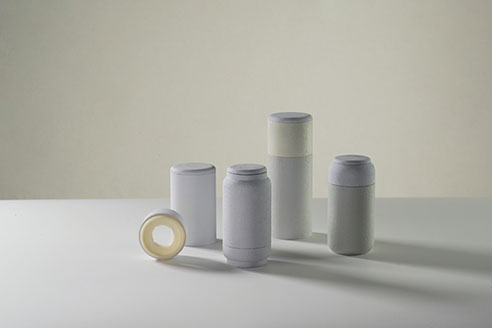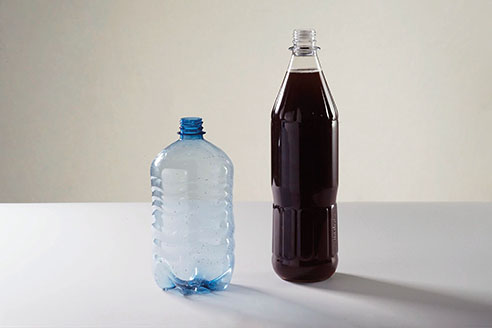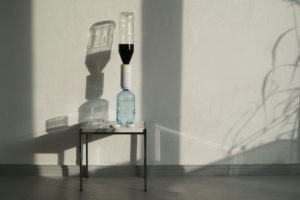
LUKULLUS | Bachelorarbeit 2020
Betrachten wir den globalen Norden als Einheit, so sehen wir derzeit den Anspruch auf den vollständigen Verbrauch aller verfügbaren Ressourcen. Dies ist nur durch die erzwungene Verknappung im globalen Süden möglich und führt so zu einer immer größeren Spaltung der Lebenswirklichkeit. Insbesondere der Zugang zu sauberem Trinkwasser ist überlebenswichtig. Die Privatisierung von Wasserressourcen und deren Verbrauch für die Produktion von Konsumgütern schafft ein absurdes Ungleichgewicht in unserer Welt. In Teilen Indiens, Afrikas und Mexikos ist es sogar billiger und vor allem sicherer, ein Softdrink zu kaufen als Wasser.
Mit meinem Entwurf „Lukullus“ gehe ich auf diesen Missstand ein. Lukullus ist ein Filter, der dazu dient, Zucker aus Flüssigkeiten herauszufiltern. Er nutzt die natürliche Eigenschaft der Hefe, die den Zucker verstoffwechselt. Der Filter besteht aus einer 3D-gedruckten Hülle, die zwei verschiedene Filterkammern enthält. An beiden Enden des Filters befinden sich Standardflaschengewinde.
Um Lukullus zu verwenden, wird zunächst der obere Teil des Filters abgeschraubt, die erste Schicht ist ein Filterpapier oder alternativ ein Standard-Wattepad. Nun wird die untere Kammer mit Aktivkohle gefüllt und mit einem weiteren Filterpapier abgedeckt. Die Hefe wird in die Softdrinkflasche gegeben und diese wird auf den Filter geschraubt. In dem Moment, in dem die Hefe auf das Getränk trifft, beginnt sie, den Zucker zu verbrauchen. Wenn die Hefe genug Zucker verbraucht hat, wird der Filter wie eine Sanduhr auf den Kopf gestellt und die Hefe wieder im Filter aufgefangen. Er kann dann für die nächste Charge wiederverwendet werden. Die Aktivkohle filtert nun die restlichen Schadstoffe aus der Flüssigkeit. Wie viel Zucker gefiltert wird, hängt von der Zeit ab, die der Hefe im Getränk gegeben wird. Das Produkt ist als vorübergehende Lösung für den Status quo gedacht. Es kann also als Erfolg gewertet werden, wenn das Produkt in Zukunft seine Daseinsberechtigung verliert. Durch den Herstellungsprozess mit dem 3D-Drucker kann Lukullus als Open Source Konzept zur verfügung gestellt werden. Die Materialien des Filters sind zugänglich und können zu geringen Kosten erworben werden.
If we look at the global North as a unit, we currently see the claim of the complete consumption of all available resources. This is only possible due to the enforced scarcity in the global South and thus leads to an ever-widening division of living realities. Especially access to clean drinking water is necessary for survival. The privatisation of water resources and their consumption for the production of consumer goods is creating an absurd imbalance in our world. In parts of India, Africa and Mexico, it is actually cheaper and above all safer to buy a soft drink than water.
With my design „Lukullus“, I am addressing this deplorable state of affairs. Lukullus is a filter that is used to filter sugar out of liquids. It uses the natural property of yeast, which metabolises the sugar. The filter consists of a 3D printed shell that contains two different filter chambers. Standard bottle threads are found at both ends of the filter.
To use Lukullus, first the upper part of the filter is unscrewed, the first layer is a filter paper or alternatively a standard cotton pad. Now the lower chamber is filled with activated carbon and covered with another filter paper. The yeast is put into the soft drink bottle and this is screwed onto the filter. From the moment the yeast hits the drink, it starts to consume the sugar. After the yeast has consumed enough sugar, the filter is turned upside down like an hourglass and the yeast is collected in the filter again. It can then be reused for the next batch. The activated carbon now filters the remaining pollutants out of the liquid. How much sugar is filtered is determined by the time given to the yeast in the drink. The product is meant to be a temporary way to deal with the status quo. So it can be considered a success if the product loses its reason to exist in the future. Through the manufacturing process with the 3D printer, Lukullus can be made available as an open source concept. The filter’s materials are accessible and can be purchased at low cost.
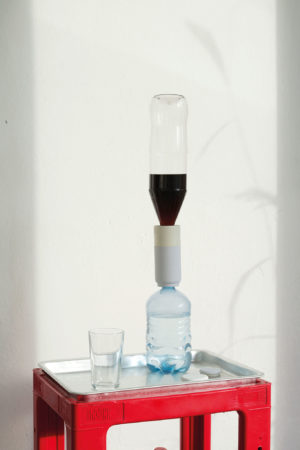
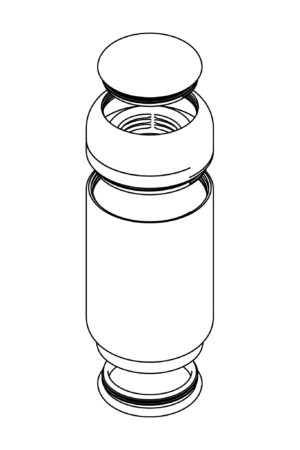
Prozess
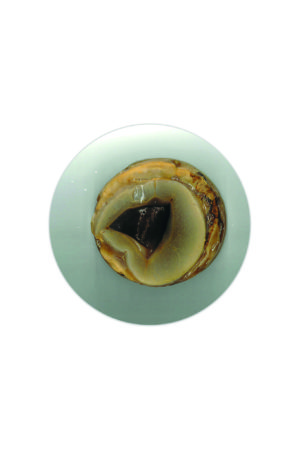
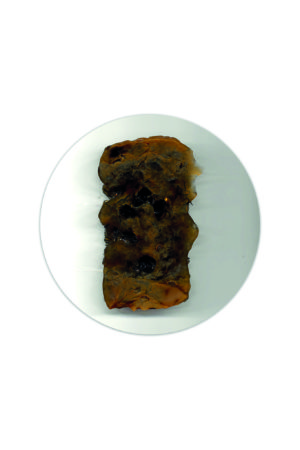
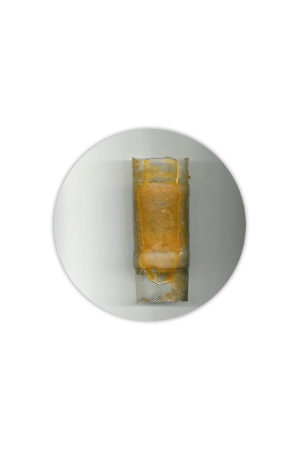
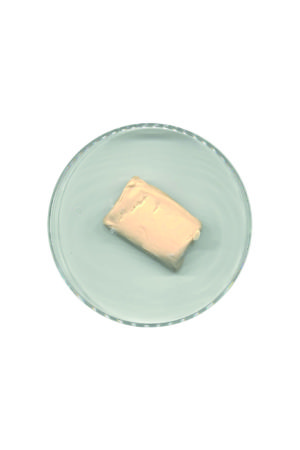
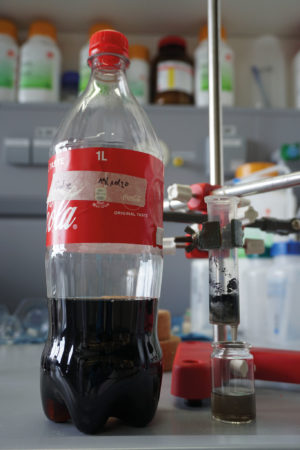
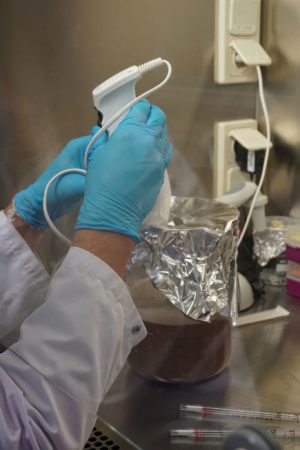
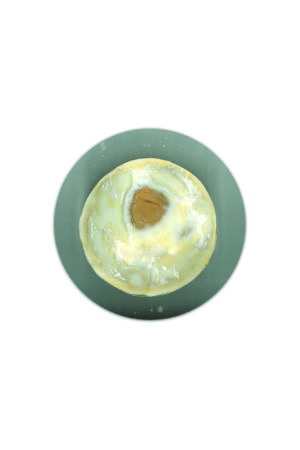
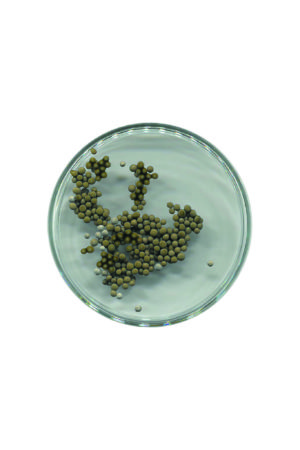
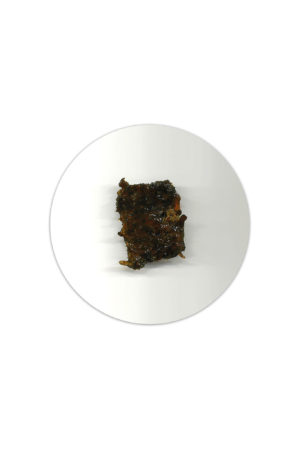
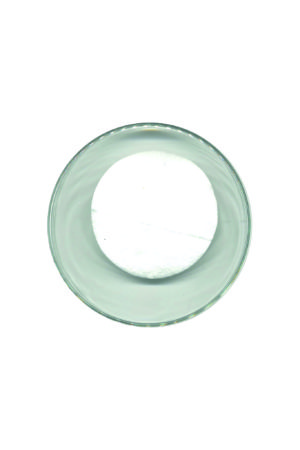
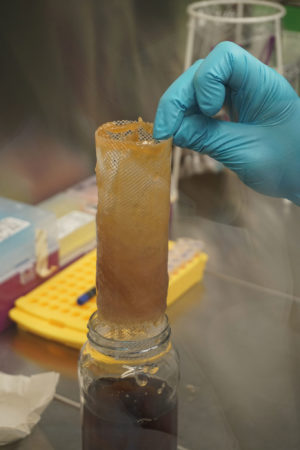
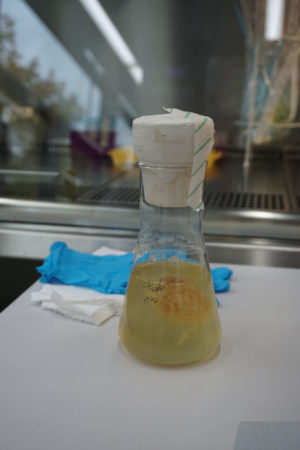
Betreut durch
Prof. Ineke Hans, Antonia Kühne, Prof. Dr. Michelle Christensen & Prof. Dr. Florian Conradi, Dr. Ruben R. Rosencrantz, Sany Chea
Kontakt
